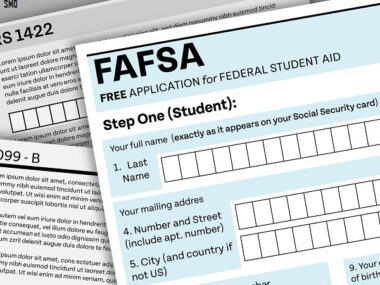International students aspiring to study in the United States often face a common challenge: securing the necessary funding to cover tuition and living expenses. A crucial question that arises in the process is whether international students can apply for the Free Application for Federal Student Aid (FAFSA).
While FAFSA is typically intended for U.S. citizens and eligible non-citizens, it’s important for international students to understand the nuances of the application process and explore other potential funding sources. In this article, we’ll dive into FAFSA eligibility for international students, whether they can apply, and what alternative financial aid options are available.
What is FAFSA?
FAFSA stands for Free Application for Federal Student Aid, and it’s the primary application used by the U.S. government to assess eligibility for federal financial aid. This includes:
- Federal Grants (e.g., Pell Grants)
- Loans (e.g., Direct Subsidized Loans)
- Work-Study Programs that allow students to work part-time to help cover education costs.
For U.S. citizens and eligible non-citizens, FAFSA is a gateway to financial support for college and university studies. However, international students who are not U.S. citizens or permanent residents typically do not qualify for federal aid through FAFSA.
Can International Students Apply for FAFSA?
Short Answer: International students cannot apply for federal financial aid through FAFSA unless they meet certain eligibility criteria.
However, the rules are not as clear-cut, and there are important considerations that international students need to be aware of. Here’s an overview:
Eligibility for FAFSA
To apply for and receive federal financial aid through FAFSA, the following criteria must be met:
- U.S. citizenship or permanent residency (Green Card holders).
- Certain visa holders may qualify, including:
- Refugees and asylum seekers
- T visa holders (victims of human trafficking)
- Cuban-Haitian entrants
International students, defined as those who are not U.S. citizens or permanent residents, are not eligible for federal financial aid through FAFSA. This means they cannot receive the following:
- Pell Grants
- Direct Loans (Subsidized/Unsubsidized)
- Federal Work-Study
Why Should International Students Care About FAFSA?
Although international students are not eligible for federal financial aid, completing the FAFSA may still be beneficial in some cases. Here’s why:
1. Institutional Aid Consideration
Many U.S. universities use FAFSA data to assess financial need for institutional aid. While federal funds are unavailable, some universities might use the FAFSA information to determine if an international student is eligible for their own institutional scholarships or need-based grants.
- Example: Harvard University and other need-blind institutions require FAFSA from international students to determine how much financial aid they can provide, even though these funds are not federal.
2. Access to Merit-Based Scholarships
In addition to institutional aid, some merit-based scholarships offered by U.S. universities or private organizations require international students to submit FAFSA as part of the application process. These scholarships are often awarded based on academic performance or other factors.
3. Financial Need Assessment
Some schools require the FAFSA to assess the financial need of international students. This may affect their eligibility for private scholarships or external funding.
Alternatives to FAFSA for International Students
Since international students cannot receive federal aid, there are other ways to fund education in the U.S. Here are some alternatives:
1. CSS Profile
The CSS Profile is a financial aid application used by many private universities to award institutional aid to both domestic and international students. The CSS Profile is available to all students, including international students, and is typically required by more selective colleges and universities.
- Key Benefit: The CSS Profile allows international students to apply for scholarships and institutional grants based on financial need.
2. ISFAA (International Student Financial Aid Application)
Some universities require the ISFAA to assess the financial situation of international students. It’s a form that’s specific to foreign applicants and provides universities with the information necessary to award financial aid.
- Schools that require ISFAA include institutions like Harvard University, Dartmouth College, and Columbia University.
3. Private Scholarships for International Students
There are several organizations and foundations that offer scholarships for international students. Some of the most reputable scholarship programs include:
- Fulbright Program: Provides funding for graduate study and research.
- Joint Japan/World Bank Graduate Scholarship: Offers scholarships for students from developing countries.
- AAUW International Fellowships: Supports women from outside the U.S. pursuing graduate study.
You can also explore International Scholarships, which provides a database of scholarships tailored for international students.
How to Apply for Financial Aid as an International Student
1. Understand the Scholarship and Aid Requirements of Your Target Schools
- Research: Before applying, check the specific requirements for each school you’re considering. Some universities provide scholarships or financial aid without requiring FAFSA or CSS Profile.
- List: Make a list of all required financial aid forms (CSS Profile, ISFAA, etc.).
2. Prepare Required Documents
Typically, universities may ask for the following:
- Income statement or tax returns (translated if necessary)
- Proof of assets (bank statements, property ownership)
- Letters of recommendation (for merit-based scholarships)
3. Explore External Funding Resources
- Websites like IEFA and Scholarships.com are great places to find international scholarships.
4. Submit Your Application Before Deadlines
- Apply early: Many scholarships and funding opportunities have tight deadlines, and missing these deadlines may mean losing out on available aid.
Although international students cannot apply for federal aid via FAFSA, they still have several opportunities to secure funding for their studies in the U.S. By completing the CSS Profile, exploring institutional aid, and applying for private scholarships, international students can greatly improve their chances of obtaining financial support.










